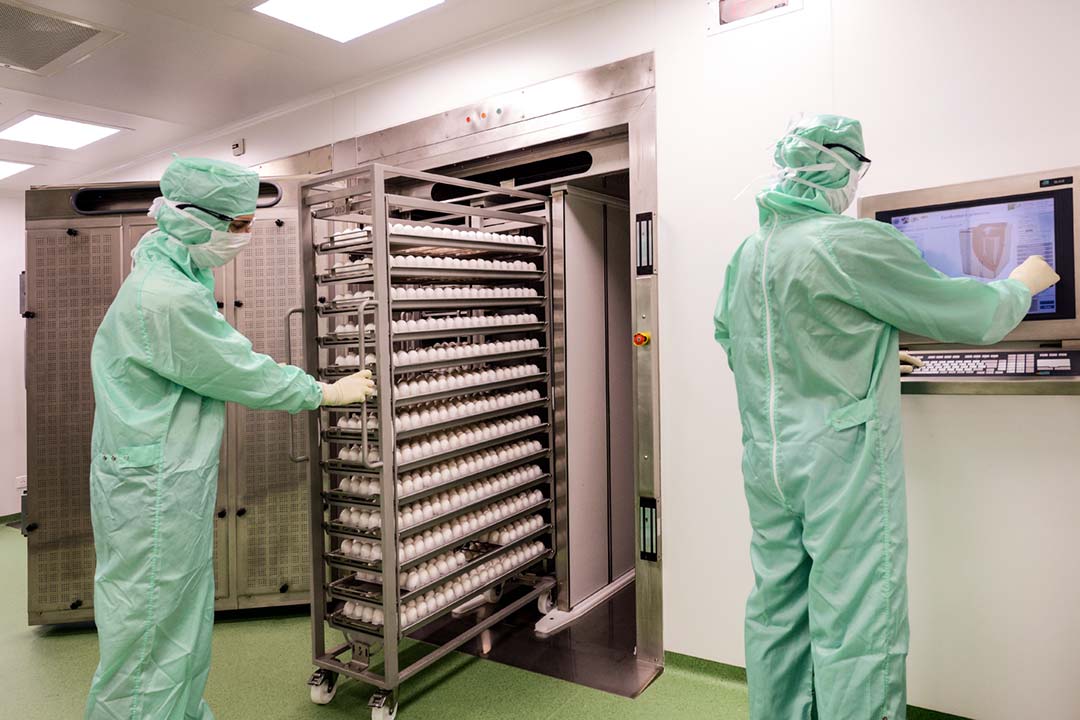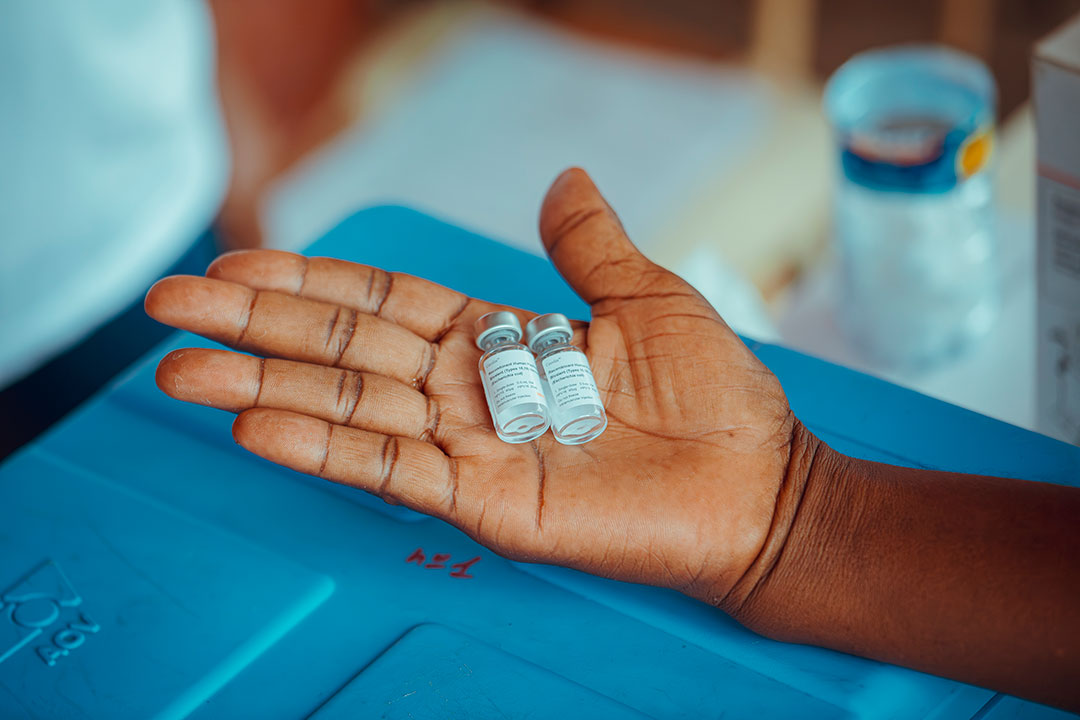How Africa is moving towards a homegrown response to health emergencies
A free trade treaty and efforts to bolster local manufacturing of health products could mean homegrown solutions for future health emergencies.
- 13 May 2024
- 5 min read
- by Priya Joi

Africa has for years been heavily dependent on importing medicines, diagnostics and vaccines to respond to the health needs of the 1.2 billion people on the continent.
When international trade was blocked during the COVID-19 pandemic, this extreme reliance on imports made Africa vulnerable.
Now, a new free trade treaty that will ease tariffs on trade between African countries is kicking off, coinciding with moves to strengthen the continent's capacity to manufacture medical supplies and build supply chains, all of which could radically change Africa's ability to respond to its own health needs.
Key things that need to happen now are continued and sustainable funding, political commitments, the creation of regional hubs, development of transportation networks and workforce development.”
– Jonta Kamara, King’s College London, UK
In an analysis published this month in Public Health Challenges, Jonta Kamara at King's College London, UK and colleagues, explain how the African Continental Free Trade Area (AfCFTA), which started trading in early 2021, could expand the African health care market.
A shift to improving Africa's health systems began in the aftermath of the 2014 Ebola outbreak that ravaged Liberia, Guinea and Sierra Leone. In 2017, the Africa Centres for Disease Control and Prevention (Africa CDC) was launched to help African Union members better respond to outbreaks. When the pandemic hit in 2020, Africa CDC provided countries with strategic, technical and logistical assistance to respond to the threat.
However, since African countries import up to 94% of medical supplies, 75% of testing kits, up to 95% of pharmaceuticals and 99% of vaccines, global trade bans meant that the ability of the continent to respond to COVID-19 was limited.
Economic trade within the continent has also been stifled because of tariffs and restrictions on trade between African countries, meaning that they trade far more outside of the continent than within. Intra-African exports are just 14% of total African trade, compared with 55% in Asia, 49% in North America and 63% in the European Union. Flights between African countries can be more expensive than flying to Europe, and visas difficult to obtain.
The AfCFTA, signed by 55 African Union member states, is set to change this landscape. The treaty has created a US$ 3.4 trillion economic bloc that could be an important global player with the right impetus and support. While trading technically was started in 2021, the pandemic meant it only really got going in late 2022 with a handful of countries; in the first-ever trade, Kenya and Rwanda shipped goods like batteries and coffee to Ghana.
Have you read?
These efforts to ease trade are being coupled with initiatives to spur innovation in the health manufacturing sector. In November 2021, the AU's treaty establishing the African Medicines Agency (AMA) came into effect, to support the Pharmaceutical Manufacturing Plan for Africa. Then in May 2022, the African Development Bank (AfDB) launched the African Pharmaceutical Technology Foundation (APTF), aimed at enabling regional pharmaceutical production and innovation capabilities.
While setting up treaties and new initiatives are welcome, this is a critical time for ambitious ideas to be met with action, say the authors. "Key things that need to happen now are continued and sustainable funding, political commitments, the creation of regional hubs, development of transportation networks and workforce development," says co-author Jonta Kamara, at King's College London, UK. "In particular, the use of regional hubs is essential given that not every country will have the capacity to produce its own medicines and vaccines." These need to be met with investments in transport logistics infrastructure and a skilled workforce, she adds.
Currently, while Africa accounts for around 20% of the world's population, the continent's vaccine industry provides only around 0.2% of global supply. African leaders have pledged to increase the share of vaccines, medicines and diagnostics locally manufactured in Africa to 60% by 2040.
An innovative financing instrument approved by the Gavi Board in 2023 called the African Vaccine Manufacturing Accelerator (AVMA) is designed to make up to US$ 1 billion available over the next ten years to support the sustainable growth of Africa's manufacturing base. This mechanism has the potential to contribute to healthy global vaccine markets, as well as benefit outbreak and pandemic prevention, preparedness, response and resilience.
“We need to continue to develop open digital public infrastructure and robust building blocks – including technology and content ‘starting points’ – to accelerate locally-owned and managed innovation to support public health goals.”
– Alain Labrique, infectious disease epidemiologist, Johns Hopkins Bloomberg School of Public Health
As the continent transitions to building its own systems, international support will be "essential" says co-author Ukeme Essien, formerly at Johns Hopkins Bloomberg School of Public Health. "This can include aspects such as shared intellectual property, licensing agreements and partnerships that leverage external expertise to enhance our capabilities."
Alain Labrique, infectious disease epidemiologist at Johns Hopkins Bloomberg School of Public Health, says that building public health system resilience, which will require "strong, local institutional capacity for science and regulatory oversight" will "help local production to flourish, and provides a healthy environment for private sector engagement to support national health goals."
Labrique says, "We need to continue to develop open digital public infrastructure and robust building blocks – including technology and content 'starting points' – to accelerate locally-owned and managed innovation to support public health goals."









